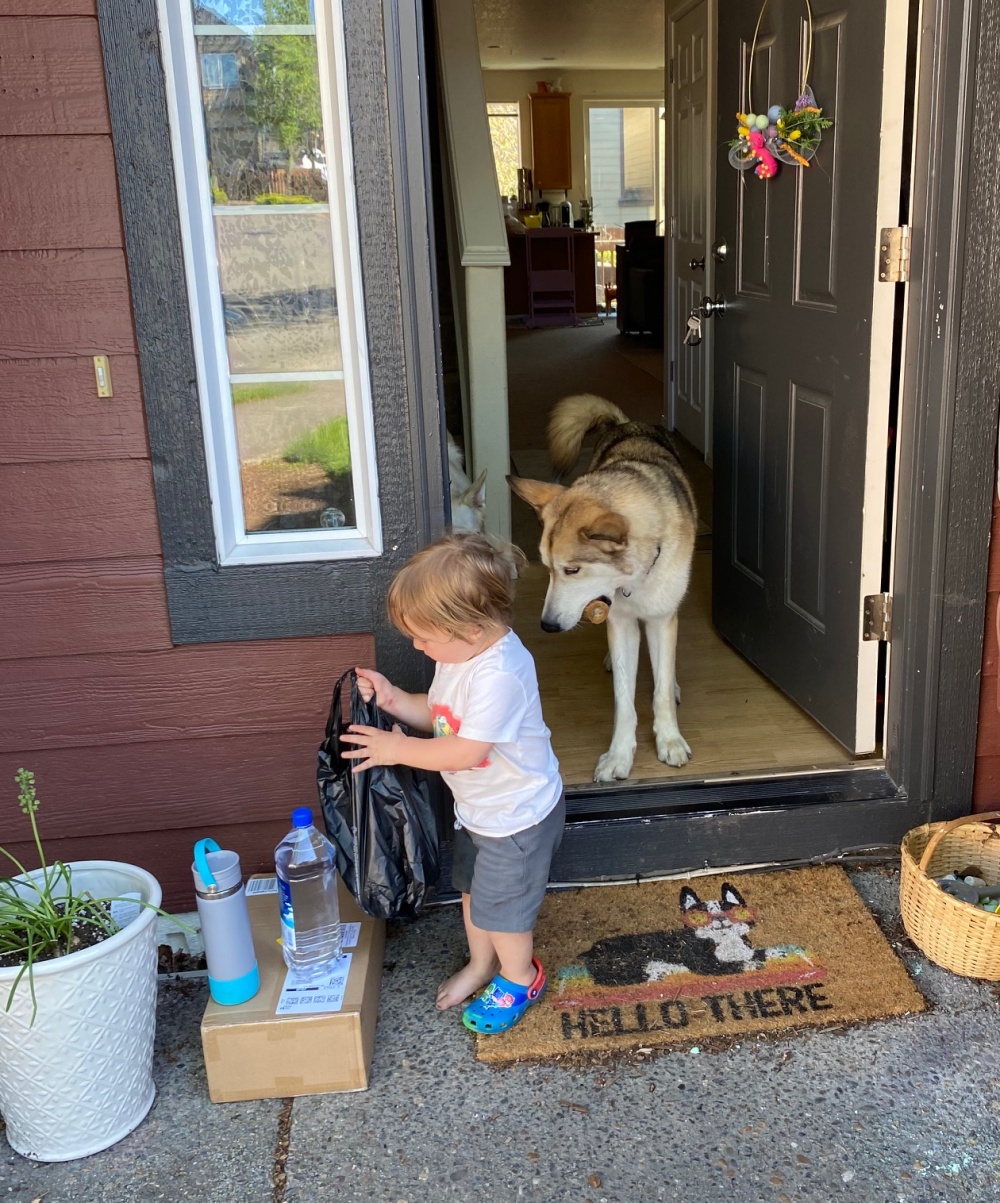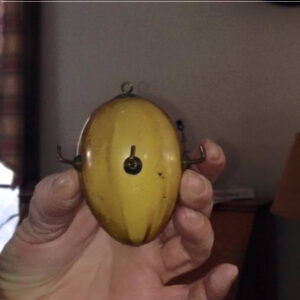Husky mix Fritz has been through a lot of change and difficulty in his very short two years of life. His name alone should give you an idea of how things have been going for him – he was originally called Boris, then Horace, then Kai, and now Fritz. For the sake of clarity, we’ll stick with the name Fritz, since that is what he is called today.
In his first year of life, this poor pup was adopted out from the Oregon Humane Society in Salem a whopping nine times and returned all nine times, often after just a few days.

When Fritz was transferred to Northwest Animal Companions (NWAC) in August of 2022, the volunteers there knew there had to be something special about him. Despite all the difficulties he’d presented, the Oregon Humane Society had not given up and euthanized him. Rather, they were now reaching out for more individualized help for him from local rescues that could pair him with a foster family.
“
“He was really high energy, and I had just finished fostering a different husky, and so I was interested to see that some of the behaviors that I thought were individual to that first husky – because I had not ever fostered a husky before – were actually breed behaviors,” says Elaine. “He’s just very curious and willful. They love stealing from other crates, and they love playing jokes and then looking around to see if you saw them play the joke. If you’re not ready for it, it’s overwhelming.”



Liz is a doula, and her husband is a photographer, so they have flexible schedules and lots of time to spend at home with Fritz. Fritz even gets to go to work with Nate sometimes and do some people-watching.
“Sometimes it really is about the fit that you have with the individual, and sometimes it’s not how you do it or how well you know dog behavior,” says Beth. “I’d almost say it’s a chemical reaction. You either have it or you don’t have it for that particular dog.”

Liz reports that there was an instant chemistry between her family members and Fritz. He’s been glued to her seven-year-old daughter and can’t get enough of playtime with Sitka, his three-legged doggy sister.
“By the second day, Sitka was relentless in asking Fritz to play, and he wanted to be right by her side,” Liz recalls. “It was a mutual feeling of being smitten. He is clearly working through things and wants to do the right thing. He is a great dog and just doesn’t know the rules yet.”
Today, Fritz has no trouble coming when his owners call, he hasn’t tried to bite anyone, and he loves his tripod sister and his little human siblings.


“He is SO good with the kids. He can’t get enough of their hugs,” says Liz. “They are doing a good job of approaching slowly and leaving him alone when he has food. They are also teaching him to leave them alone when THEY have food. I can see why someone else would think he was naughty, but he really just seems clueless to me. He has us so impressed!”

Beth and Elaine say Fritz’s story is an important one to share, because there are so many other dogs like him in danger of euthanasia if no one takes the time to see their worth. Rental homes and apartments often have breed and size restrictions, increasing people’s irrational fears of these animals and leaving dogs like Fritz with nowhere to go. Beth reports that around 80 percent of the dogs that shelters reach out to NWAC to save are large breeds.
“We truly believe without the advocacy of the Humane Society staff stepping up and Elaine and our trainer putting in the time, [Fritz] wouldn’t have made it,” says Beth.
Elaine adds, “There are a lot of Fritzes in shelters and rescues that are mislabeled, and if they don’t have an advocate, they’re toast. If those frontline people don’t step forward and advocate for the animal, you don’t have the outcome that you have with Fritz.”






